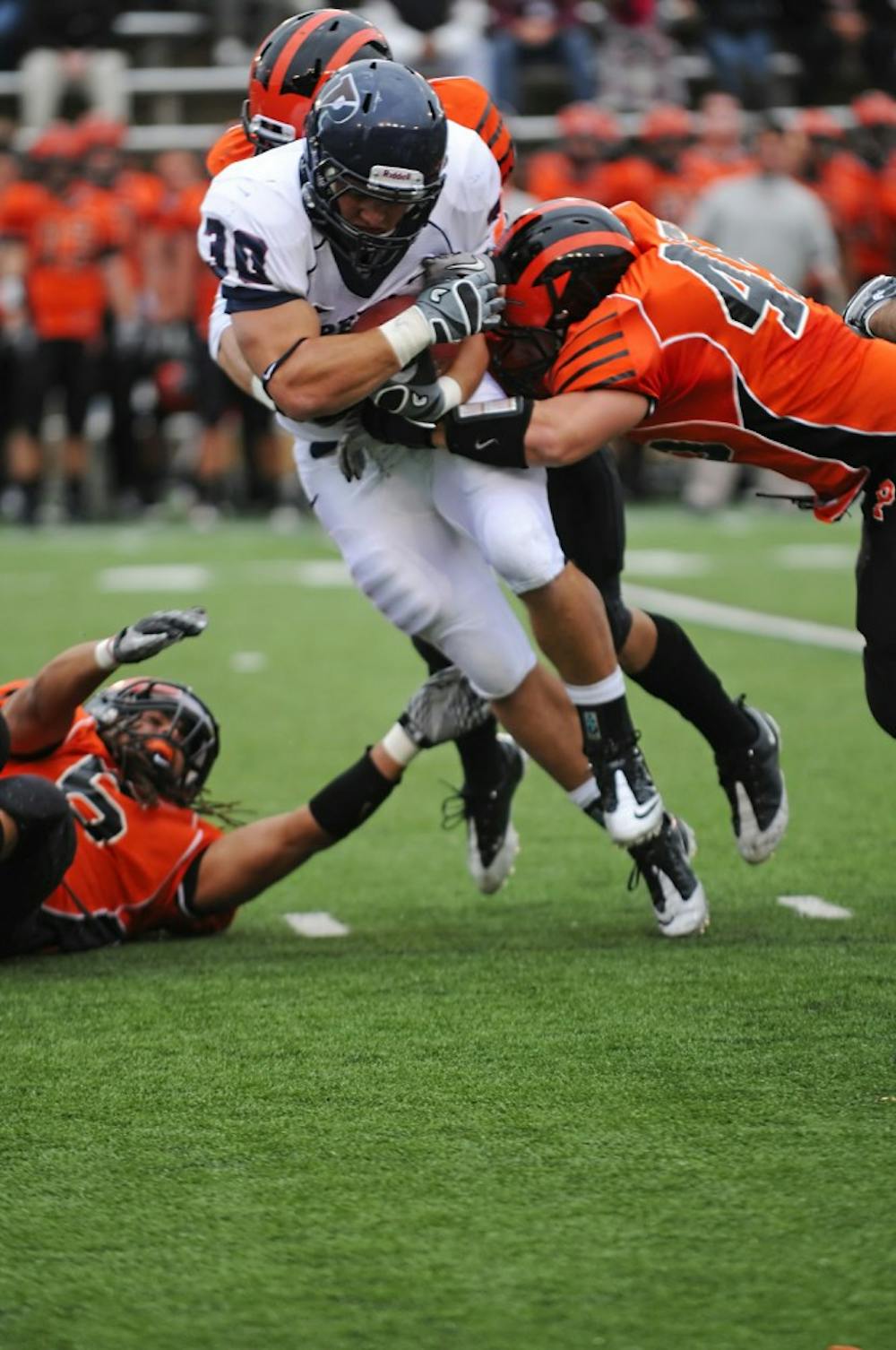In a “front-and-center” move amongst NCAA Division I conferences, the Ivy League announced Wednesday it would institute rules limiting full-contact football practices, among other measures, to minimize chances of concussions for student athletes.
The rule changes, which were accepted by the Ivy presidents and will be put into effect this coming season, are the result of a 21-page Concussion Report, also released by the League Wednesday. The report was compiled by an ad hoc committee of school presidents, coaches, trainers, physicians and experts in the field of concussions.
“The presidents formed the committee because they were deeply concerned that concussions are a significant injury in football and wanted the Ivy League to take an active leadership role in developing steps and measures to limit concussions, first in football and then in other sports as appropriate,” Ivy League Executive Director Robin Harris said.
Penn football coach Al Bagnoli, who served on the Ivy committee, said it was the right thing to do.
“If we can reduce the amount of potential traumas to the head, long term it had to be a positive,” Bagnoli said. “As long as we can do it and not compromise the game.”
The changes to the practice rule limit full-contact to twice weekly during the season — a 60 percent reduction from NCAA standards — and reductions to full-contact spring and preseason practices as well. Additional measures will also be taken to educate players as to the dangers of concussions and teach proper football technique to avoid leading with the head.
The League also plans to take “a more stringent approach” to postgame sanctions for helmet hits, which could include suspension for intentional hits, according to the report. The executive director will determine punishments. This is in line with rule changes instituted by the NFL last season.
Bagnoli said that to his knowledge, the Ancient Eight is the first conference to take these steps.
“We were trying to be front and center… ahead of the curve,” he said. “And do it in a very responsible way.”
Penn and the Ivy League are no strangers to the unfortunate dangers associated with head trauma and football. Last fall, deceased Penn football player Owen Thomas was diagnosed with chronic traumatic encephalopathy, a neurodegenerative disease caused by repeated head trauma. Thomas committed suicide in his off-campus apartment in April 2010.
Bagnoli asserted that, despite Thomas’ CTE diagnosis falling just before the committee’s formation in December, the rule changes “had nothing to do with Owen.”
“It started even before that happened. It was a charge from Steve Galetta in our neurological department in conjunction with the NFL, and it’s kind of trickled its way down.”
While the practice rule changes may not have a large impact on the Quakers routines in-season — Penn rarely practices full-contact more than twice each week, especially as the season wears on — Bagnoli said it will definitely alter their preseason and spring practices.
However, he added, “we thought these were prudent and sensible rules.”



